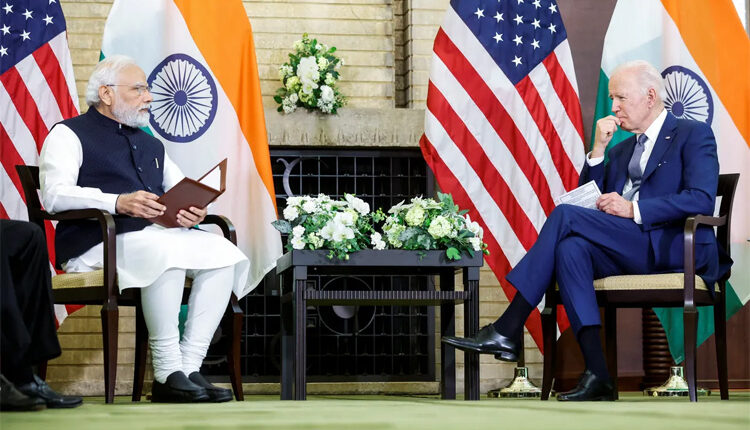India-US to step up space cooperation during PM Modi visit
During Prime Minister Narendra Modi’s state visit to Washington DC on June 22, India and the United States (US) will step up their space-related collaboration in three areas of human space flight, planetary defence, and commercial space activity, people familiar with the discussions said.
The two countries are also discussing New Delhi’s participation in the Artemis Accords.
Under the initiative on critical and emerging technologies (ICET), agreed upon by both national security advisors, Jake Sullivan and Ajit Doval, in January, the White House factsheet had mentioned strengthening human space flight cooperation; identifying innovative approaches for both countries to collaborate in the commercial space including through a joint working group; and identifying new talent and encouraging exchanges by expanding the professional engineer and scientist exchange programme.
During Modi’s visit, those familiar with the discussions said, there will be movement on all fronts. On human space flight, it is understood that there will be deeper collaboration on astronaut training, crew rescue and other activities.
The January factsheet mentioned this would include “advanced training for an Indian Space Research Organization (Isro)/Department of Space astronaut at NASA Johnson Space Center”.
This, people said, would help India’s Gangayaan mission, which aims to demonstrate human space flight capability by launching a crew of three members to an orbit of 400 km for a three-day mission now scheduled for 2025.
If the negotiations translate into concrete outcomes, it will also be the first time India and the US will work together on planetary defence. The National Aeronautics and Space Administration (NASA) has a planetary defence coordination office set up in 2016 that looks for and catalogues near-earth objects (NEOs) such as comets, asteroids, and potentially hazardous objects, which come within 30 million miles of the earth’s orbit. It warns of the potential impact of NEOs and works with other governments to “ensure global planetary defence efforts are coordinated and streamlined”.
Another area where both countries will step up their cooperation is commercial space activity. With India liberalising its space sector in 2020, the country is home to a growing private sector space industry with start-ups at the cutting edge of technology. The growing collaboration will be reflected both at Indus-X — an event being hosted by the US-India Business Council to accelerate start-up innovation and connect them with big capital and governments — as well as the constitution of a working group.
India and the US are also discussing the possibility of New Delhi’s participation in the Artemis Accords — a multilateral exploration programme led by the US, with the participation of 24 other countries and one territory, that establishes a framework for civil cooperation and peaceful use of the moon, Mars and other astronomical objects.
On Friday, a senior NASA official Bhavya Lal told PTI that the agency feels quite strongly that India should be a part of the Accords. In recent years, India and the US have stepped up their space cooperation. At the 2+2 dialogue between the foreign and defence ministers of both countries in April 2022, they agreed on an agreement on working together on space situational awareness. Isro and NASA are also working on Nisar, scheduled to be launched from India in 2024.


Comments are closed.